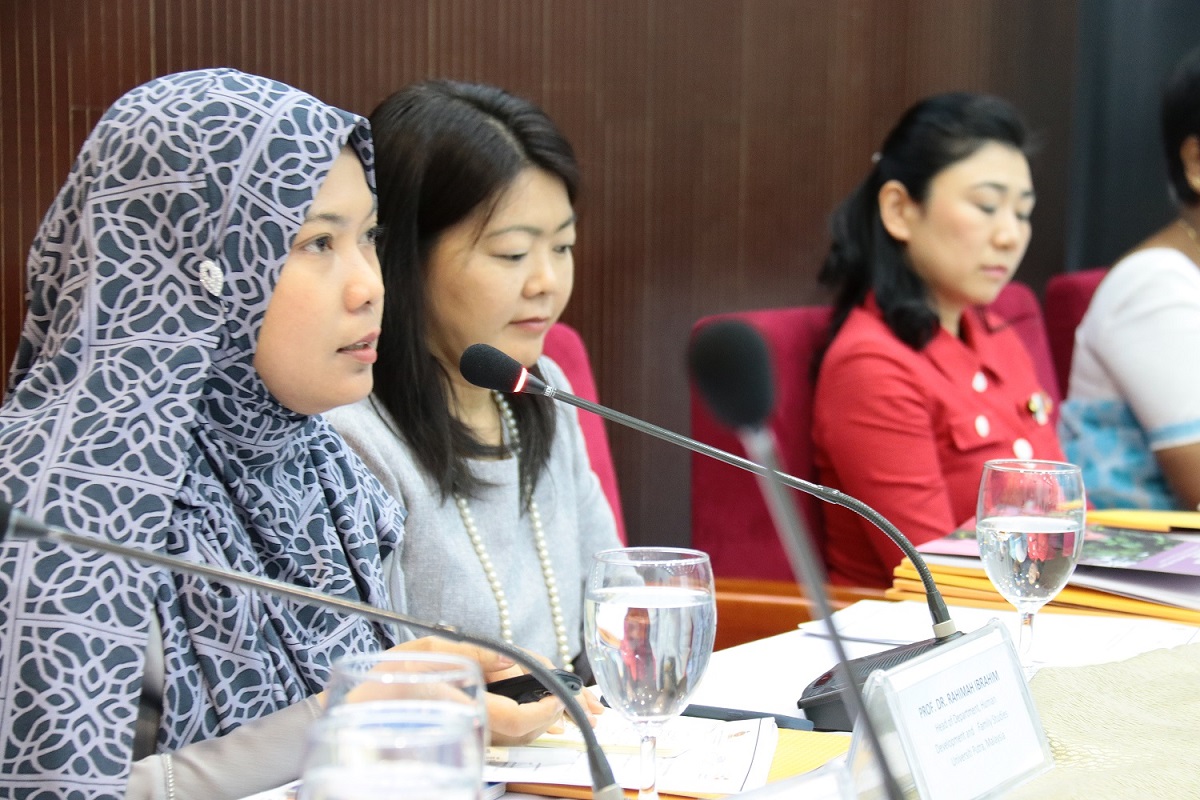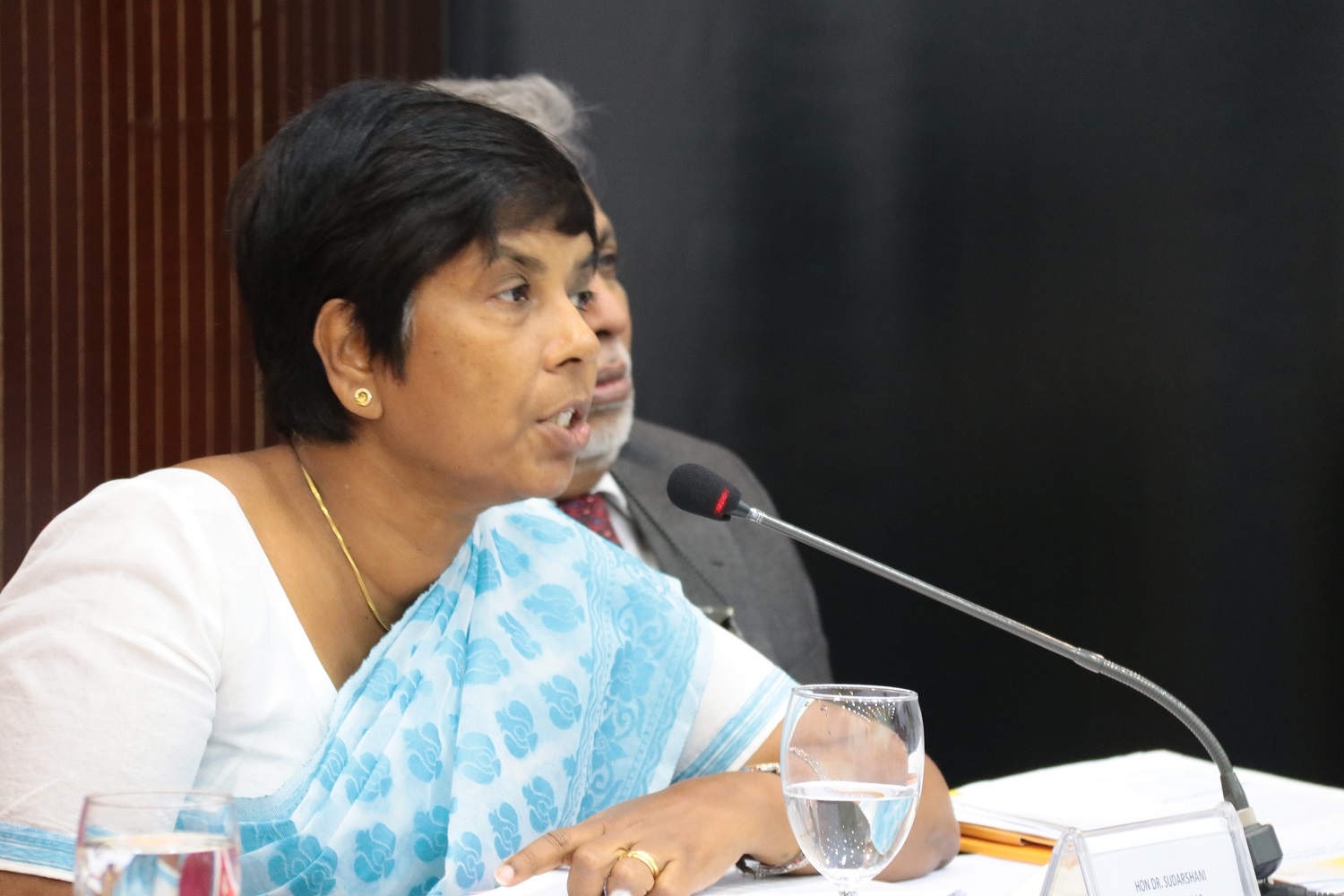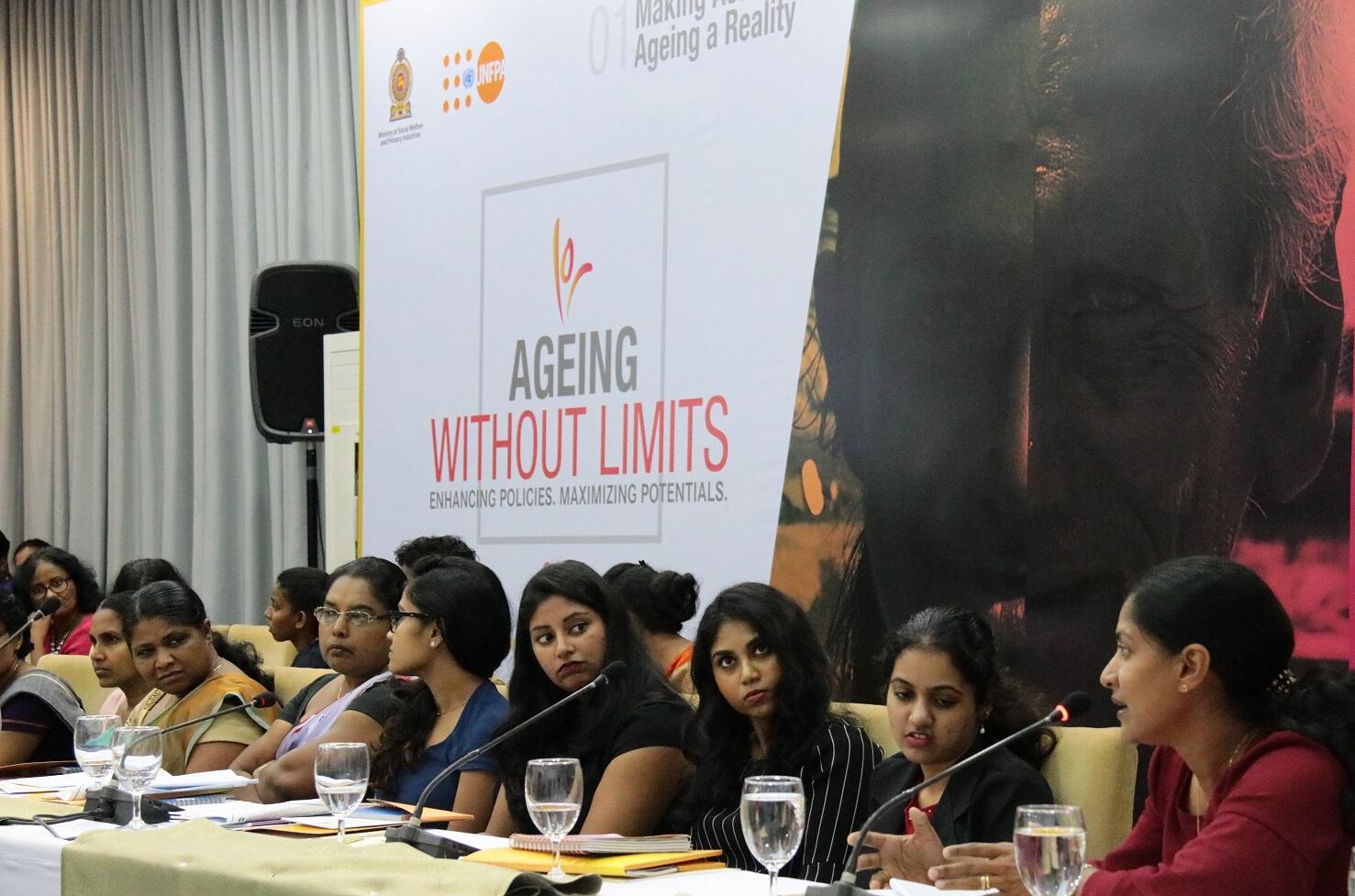UNFPA marks International Day of Older Persons with a high-level policy dialogue on ‘Making Active Ageing a Reality’ with experts from Japan and Malaysia
COLOMBO, Sri Lanka (27 Sept 2018): By 2030, 1 in 5 people in Sri Lanka will be above the age of 60. While ageing is a triumph of development that indicates Sri Lanka’s continuous investment in the wellbeing of its people, is Sri Lanka ready to face this rapid demographic transition?
To mark International Day of Older Persons, which is commemorated on 1st October, the United Nations Population Fund (UNFPA) in partnership with the Ministry of Social Welfare and Primary Industries convened the first of a series of high-level policy dialogues, titled ‘Ageing Without Limits: Enhancing Policies. Maximizing Potentials.’, which aims to provide policy-level inputs to maximize the opportunity of population ageing with International guest speakers.
The theme for the first dialogue was ‘Making Active Ageing a Reality’, and it focused on how population ageing must be addressed through an evidence-based approach, life-cycle approach, and rights-based approach. The evidence-based approach focuses on the role of data that informs policy decisions. The life-cycle approach highlights the need to invest in youth to ensure they age with economic security and life skills. The rights-based approach relates to socio-cultural aspects of ageing, such as the gender dimension and the need to shift the traditional role of elderly women as caregivers.
The esteemed panel comprised of key representatives from the Government of Sri Lanka and experts and policy leaders, including Hon. Karen Makishima, Member, House of Representatives in Japan, and Prof. Rahmiah Ibrahim, Head of Department of Human Development and Family Studies of Universiti Putra, Malaysia.
In his opening remarks, Hon. Daya Gamage, Minister of Social Welfare and Primary Industries stated: “Sri Lanka will be the 3rd aged society in Asia by 2030. This demographic shift is an opportunity for the Government to create a conducive environment to utilize the wealth of knowledge that the elderly can contribute to our society.”
Ms. Ritsu Nacken, Representative of UNFPA Sri Lanka highlighted, “Preparing for an ageing population is vital for the achievement of the 2030 Agenda for Sustainable Development, to ensure that no one is left behind. This is why it is important to maximize the potential of older persons, especially of elderly women.”
Hon. Karen Makishima, said, “Japan is the front runner of an ageing society. We have established and are considering various policies to prepare for 100 years of life, including re-education systems and plans to abolish the retirement age and introduce a re-employment system.”

Prof. Rahimah Ibrahim, Head of Department of Human Development and Family Studies, Universiti Putra Malaysia; said, “Between 2020 and 2046, Malaysia’s 65+ population will double from 7% to 14%. Financing the elder population must be considered by countries. In Malaysia, we have multisectoral support for the aged, from the Government, Private Sector, and Civil Society.”


Hon. Dr. Sudarshini Fernandopulle, Member of Parliament, and Professor Lakshman Dissanayake, Vice Chancellor, University of Colombo, were also distinguished members of the panel and highlighted the importance of data and feminization of ageing, among other important points. The panel was moderated by Dr. Ganeshan Wignaraja, Executive Director, Lakshman Kadirgamar Institute, and officials from the Government, international community, civil society, academia, and the media engaged in the dialogue. UNFPA will continue this series of dialogues to provide inputs to strengthen policies and support the development and implementation of a holistic system to ensure Sri Lanka is prepared to maximize the opportunity of this demographic transition.



